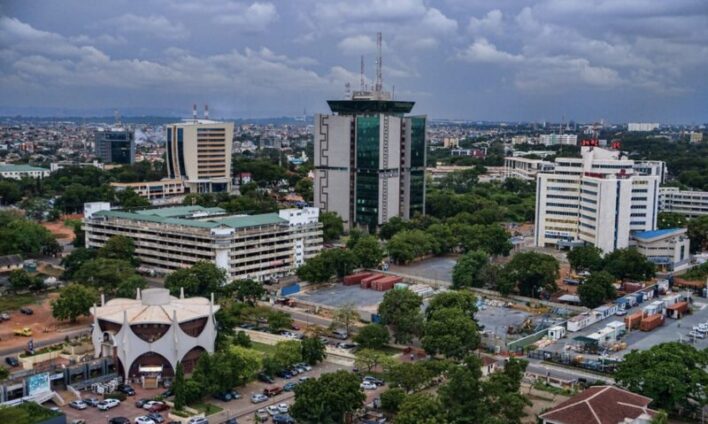Global ratings agencies, Fitch and Moody’s have sparked confidence in Ghana’s Long-Term Local-Currency (LTLC), raising the country’s credit ratings from the previous ones.
While Fitch upgraded the country’s Long-Term Local-Currency Issuer Default Rating (IDR) from ‘CCC’ to ‘CCC+’, Moody’s raised the ratings from the previous levels of ‘Caa3’ and ‘Ca to ‘Caa2.’
The upgrade was driven by the country’s extensive debt restructuring, including the recently completed Eurobond exchange, the two ratings agencies said, noting that the process had eased the government’s financial pressures.
Regarding outlook, Fitch noted that it typically did not assign outlooks to IDRs of sovereigns with a rating of ‘CCC+’ or below, while Moody’s shifted the country’s outlook from ‘stable’ to ‘positive.’
“The upgrade of Ghana’s LTLC IDR to ‘CCC+’ reflects our increased confidence that the likelihood of another default on Ghana’s LC debt is being reduced with the completion of the Eurobond restructuring, as this further unlocks access to concessional international finance,” Fitch noted.
“The ‘positive outlook reflects the potential for liquidity risk to ease amid ongoing fiscal consolidation efforts supported by an International Monetary Fund (IMF) programme,’ Moody’s said in a statement last Friday.
Earlier this month, Dr Mohammed Amin Adam, Ghana’s Finance Minister, indicated that the country would resume the payment of debt owed its Eurobond holders, following the successful completion of its US$13 billion external debt.
It also came on the backdrop of the country reaching an agreement with the Staff Mission of the IMF on the third review of its ongoing Extended Credit Facility (ECF), of which the external debt restructuring forms a major part.
This is to help in Ghana’s recovery from a near US$30bn debt default in 2022, as the restructuring is expected to cut Ghana’s debt by $4.7bn and offer cash flow relief worth $4.4bn during the IMF programme.
“By the 98 per cent we’ve achieved, we’ve all consented to the exchange, but the actual exchange will take place over the next two weeks, and once we exchange, it means that we can start servicing our debts,” he said.
“We’ll not service at the levels we’d have done because of the reduction in the interest rate and principal… with the Official Bilateral Creditors, the servicing of the debt has been postponed until after 2028,” he added.
Ghana’s economy has shown signs of recovery, with growth hitting 6.9 per cent in the second quarter of 2024, the highest in five years, the Ghana Statistical Service (GSS) has noted.
At the end of its two-week long third review of Ghana’s programme, Mr Stephane Roudet, Mission Chief for Ghana stated that the country’s economic growth in the first half of 2024 was much higher than initially envisaged.
Latest Stories
-
One feared dead, 3 security personnel injured in violent clashes with ‘Ghetto Boys’ at Gomoa Dominase
1 minute -
GPL 2024/25: We are going all out for the title – Nations FC’s Kennedy Ansah
4 minutes -
Minority credits Akufo-Addo/Bawumia gov’t for Cedi stability, questions NDC’s economic innovations
10 minutes -
Ghanaian youngster Mohammed Sofo scores in New York Red Bulls penalties win over FC Dallas
19 minutes -
Minority demands transparency as reserve figures spark concern
21 minutes -
Mahmaa has vindicated the NPP on Cedi appreciation – Amin Adam
26 minutes -
Osman Bukaris stars as Austin FC beat Houston Dynamo in MLS Cup
41 minutes -
Aflao: Police probe alleged manhood shrinkage
57 minutes -
Former King Faisal striker Kwame Peprah likely to leave Kerala Blasters
1 hour -
Interior Minister raises alarm over surge in unregistered weapons
1 hour -
Brighton’s Ibrahim Osman returns after Feyenoord loan spell
1 hour -
Tottenham trio forced to wait for winner’s medal
1 hour -
AMA decongestion exercise: It will only last for 7 months – former MP Ebenezer Nartey
2 hours -
Tema fire: Chief Fire Officer joins firefighters to extinguish flames
2 hours -
NPC Ghana reassigns Isaac Tetteh as Media Officer and Administrator for Para-Sport development
2 hours

